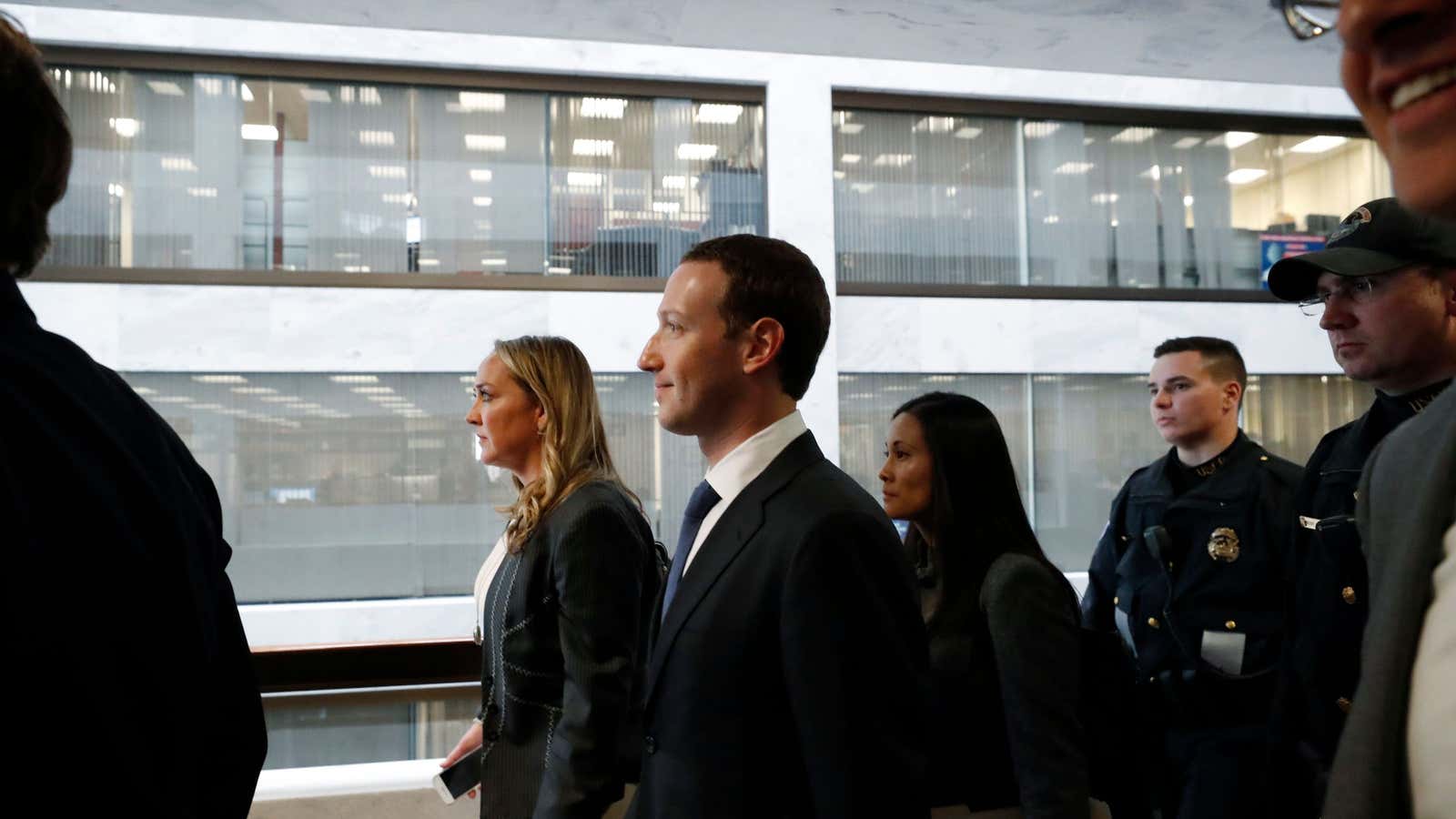Mark Zuckerberg isn’t planning on going anywhere.
“I’m very confident that we’re gonna be able to work through these issues,” the Facebook founder and CEO told The Atlantic. When a reporter asked last week if he was the right person to lead Facebook through its current crisis, Zuckerberg responded with a resounding “Yes,” adding “I think life is about learning from the mistakes and figuring out what you need to do to move forward.”
But Zuckerberg is about to face a very public trial, with two days of testimony to Congress broadcast online. It would be unusual for Facebook’s investors, high-powered board, and Zuckerberg himself not to have a “Plan B.”
Zuckerberg faces a grilling today in front of Judiciary Committee Senators, a seasoned group of former prosecutors with oversight of the US’s Homeland Security Department and Federal Bureau of Investigation. Tomorrow he appears in front of the House’s Energy and Commerce Committee. On both days, he will likely be quizzed on data privacy for Facebook users in the wake of the Cambridge Analytica scandal, Russian meddling on the platform and the spread of disinformation generally. Congressional hearings are rarely kind to CEOs whose companies have messed up.
Equifax provides a cautionary example. After Equifax CEO Richard Smith revealed in September of 2017 that data from over 140 million customers had been stolen, he pledged to remain at the company, but was forced out within weeks. Smith’s disastrous hearing in front of Congress that October highlighted how just how bad the company’s internal security processes were and its galling failures of corporate governance.
A massive corporate scandal can, not surprisingly, also take a huge toll on investors. (It’s worth noting that the men who ran the other three companies besides Facebook in the chart below left the company soon after scandal hit).
Facebook isn’t one of the 30 stocks that make up the Dow Jones Industrial Average, but when it has a bad day in the market, the Dow does often too. While faith in the US stock market will ultimately survive if Facebook’s stock collapses, it’s going to be a bumpy ride.
Already, some Facebook shareholders are agitating for his departure. Zuckerberg “doesn’t understand how a large, global and publicly-held company is run,” said Michael Connor, head of Open MIC, an activist investor group that coordinates Facebook investors to demand change, on April 9. “He currently has two jobs at Facebook—CEO and chairman of the board. It’s time for him to give up at least one, if not both, titles.”
It is time to retire the Silicon Valley myth that founders are untouchable, some say. “We believe in the founder-driven narrative that the tech community has pushed,” said Raj Goyle, a former Kansas state legislator and ex-Congressional candidate, who now is the co-CEO of legal tech platform Bodhala. “As a founder, I appreciate it, but it is also unrealistic. Simply because you are a founder of a company that has changed the world, that doesn’t mean you’re immune from accountability.”
Facebook’s unique two-tier shareholder structure means that it is impossible for investors to vote Zuckerberg out against his will (he holds less than 20% of the shares, but retains about 60% of the voting authority). But a responsible CEO and founder, one concerned about preventing investor value and his own legacy in Silicon Valley, would be thinking about his exit all the same.
